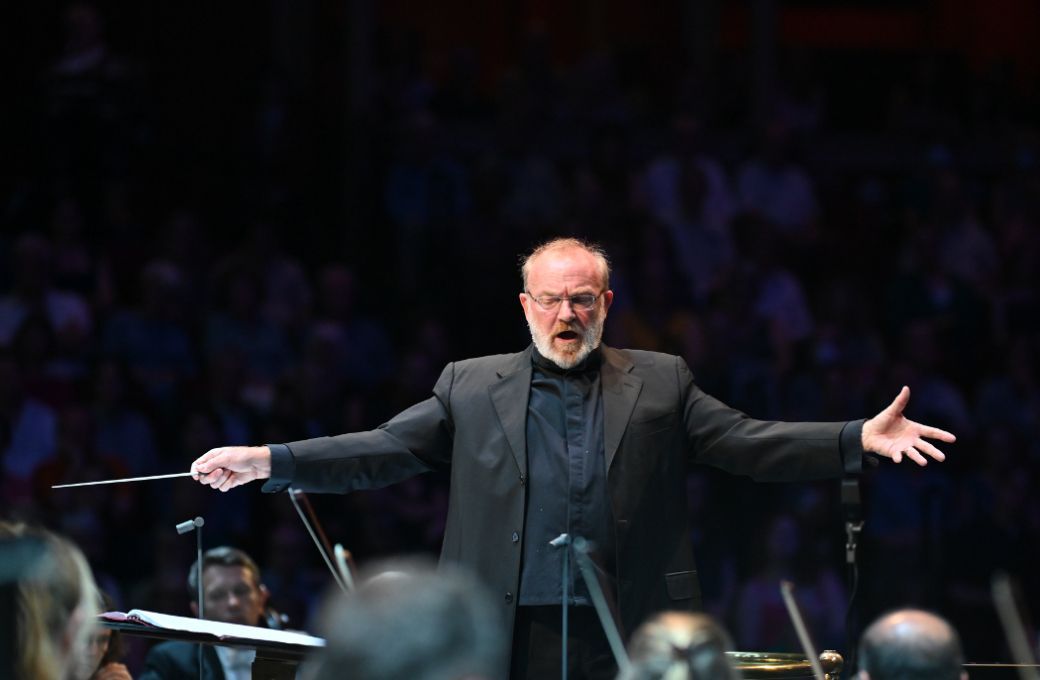Sir Harrison Birtwistle, who died this year, wrote his Sonance Severance 2000 for the reopening of The Cleveland Orchestra’s Severance Hall (named after the original benefactor), after a period of closure for refurbishment. “Sonance” is found in Shakespeare’s Henry V; “Let the trumpets sound the tucket sonance and the note to mount”. Birtwistle observed “such a summons to arms or to begin a journey seemed appropriate to launch a renewed hall.” It takes longer to understand the title than to hear the piece itself, which plays for three minutes. But it is a mighty miniature, gradually emerging from subterranean rumblings in the basses, cellos and tuba, gaining substance via horns, wind arabesques and upward-swirling strings, until its unexpected expiry. No coda, just a Birtwistle pun: a sudden severance.

From a piece almost too short to one almost too long. Iannis Xennakis was born in 1922, and his anniversary was recognised by the first Proms performance of his Jonchaies (French for reed beds), written in 1977. The few pieces of orchestral Xennakis I have heard are short, with Jonchaies being his largest orchestral score at sixteen minutes. It's large in instrumental demands also, with 109 players. They are not all used all the time, but often in separate instrumental blocks. The strings launched the work with high passion, the BBC Symphony Orchestra’s searing violins soaring aloft. Next the band of percussionists added some primitive throbbing recalling – or, in this programme, heralding – Stravinsky’s The Rite of Spring. There were also folksy impressionistic moments, more than one suggesting the wind in the titular reeds, and eventually an exciting din when that many players get to sound together.
In between came Ravel’s Piano Concerto in G major. Soloist Tom Borrow, making his Proms debut, is already master of his part. If not every moment of his subtle rubato would have pleased the touchy composer (who preferred metrical strictness), some individuality is better than the routine that can afflict the standard concerto repertoire. The lovely Adagio assai can be more flowing, and a reticent cor anglais, even though carrying the melody, was covered sonically by the soloist’s decorative patterns. But there were fine contributions everywhere, from flute, bassoon, and especially the horn in his high-lying first movement solo. The dazzling performance of the finale led to an encore, and Borrow offered more fireworks, both titular and keyboard. Debussy’s prelude Feux d’artifice was brilliantly played.
As indeed was The Rite of Spring. From the high bassoon solo and ensuing woodwind clamour of the opening, then the vicious cross-accents of The Augurs of Spring to the trumpet-led thrills that close Part 1, the BBC SO was on top form. There was poetic feeling too, at least in the quiet impressionistic start to Part 2. But the build-up to ritual violence is never kept at bay for long, and Martyn Brabbins maintained dramatic impetus, the cruelly relentless tread of the Ancestors depicted in braying horns with their bells in the air. An unstoppable sacrificial dance slammed the door on any pity for the chosen one.
To prepare such a demanding programme so well is easy to take for granted, but even with musicians of this skill and professional dedication it is a sort of miracle. But this is the BBC Symphony Orchestra in the Proms season, so it is an everyday miracle.


